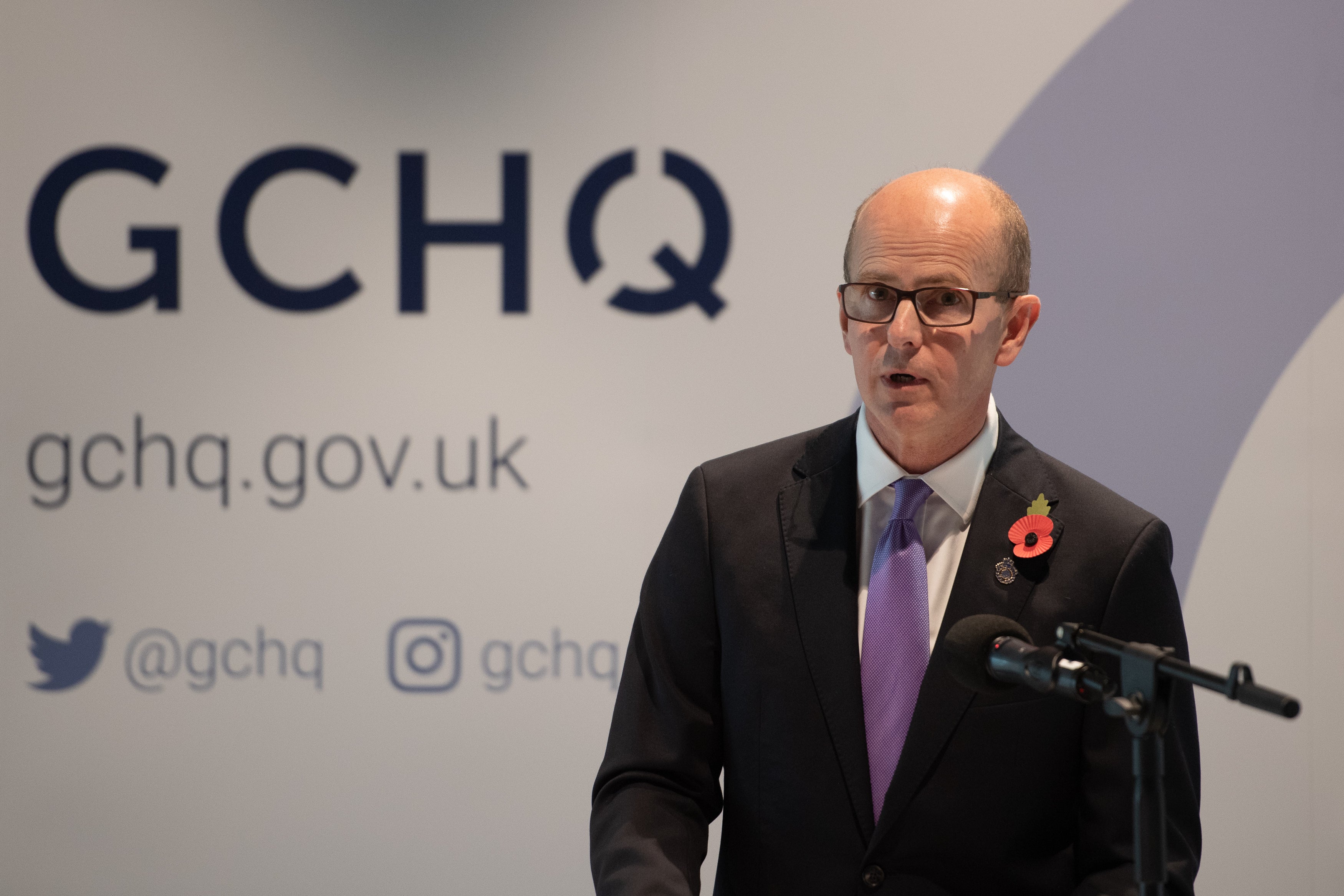Vladimir Putin’s advisers scared to tell him the truth, says British spy chief
The head of Britain’s GCHQ spy agency said Russian troops were short of weapons and low on morale.

Vladimir Putin’s advisers are scared to tell him the truth about the progress of his Ukraine invasion but the extent of the Russian leader’s “misjudgements” must be “crystal clear to the regime”, Sir Jeremy Fleming has said.
In a rare public address during a visit to Australia, the head of Britain’s GCHQ spy agency said Mr Putin had “massively misjudged the situation”.
And he warned China not to become “too closely aligned” with the Kremlin.
He said: “It’s clear he misjudged the resistance of the Ukrainian people.
“He underestimated the strength of the coalition his actions would galvanise. He under-played the economic consequences of the sanctions regime. He over-estimated the abilities of his military to secure a rapid victory.
“We’ve seen Russian soldiers – short of weapons and morale – refusing to carry out orders, sabotaging their own equipment and even accidentally shooting down their own aircraft.
“And even though we believe Putin’s advisers are afraid to tell him the truth, what’s going on and the extent of these misjudgements must be crystal clear to the regime.”
He added: “It’s become his personal war, with the cost being paid by innocent people in Ukraine and increasingly, by ordinary Russians too.”
Speaking at the Australian National University in Canberra, Sir Jeremy said western allies were making “deeply secret intelligence” public to get ahead of Mr Putin’s information war, while also tackling cyber threats.
On China, he said the country’s long-term interests are not well served by an alliance with a leader that “wilfully and illegally” ignores the international “rules of the road”.
His intervention comes after Prime Minister Boris Johnson last week directly confronted President Xi Jinping over Beijing’s stance on the conflict in Ukraine in what was described as a “frank and candid” discussion.
On Thursday, Foreign Secretary Liz Truss will urge Indian prime minister Narendra Modi to work with other democracies to counter Mr Putin’s aggression in Ukraine amid reluctance to publicly condemn the actions of Russia – a long-standing ally dating back to the Cold War.
India, which is heavily reliant on Moscow for arms imports, has abstained in a series of votes in the United Nations on the issue.
At home, the Prime Minister defended how quickly Ukrainians fleeing the conflict were being offered visas, as he was warned of the danger of refugee schemes turning into “Tinder for sex traffickers”.
Mr Johnson said it was important that “checks both ways” were being carried out before Ukrainian refugees could come to the UK, both to ensure those in need were who they said they were, and also that those offering help were fit to do so.
Appearing in front of the Commons Liaison Committee, Mr Johnson said there had already been cases of “people coming from that war zone who may not be entirely who they say they are” after it was revealed just 2,700 visas have been granted to people wanting to come to the UK under the Homes For Ukraine scheme despite applications reaching 28,300.
The UN refugee agency said four million people have now fled Ukraine since Russia launched its war on February 24.
Mr Johnson said: “What I wanted was a system that was as light touch as possible and would enable people to come here, but would enable us also to do checks.
“We are outside the Schengen system, we have the advantage of being able to clarify people’s status, (that) they’re bona fide – that’s not a bad thing if you want to have a programme that really works and commands confidence.”
Dame Diana Johnson, the Labour chair of the Home Affairs Committee, told Mr Johnson that some anti-slavery and refugee groups had warned that the Homes for Ukraine sponsorship “risked operating as Tinder for sex traffickers”.
He said: “I think that is one of the reasons why it is important to have as light touch as possible, but to have DBS checks and checks both ways to make sure we have a programme that is really working.”
Defending the rate of progress in resettling refugees, the Prime Minister added: “These numbers are climbing.”
New laws were also announced on Wednesday which aim to prohibit the maintenance of aircraft or ships belonging to sanctioned Russian oligarchs or their businesses.
The Foreign Office said the new powers, which have been laid in Parliament via a statutory instrument, had been used immediately to sanction Russian businessmen Eugene Shvidler and Oleg Tinkov.
Meanwhile, the finance, trade and shipping sanctions imposed in relation to Crimea have been expanded to the Donetsk and Luhansk regions.
Bookmark popover
Removed from bookmarks